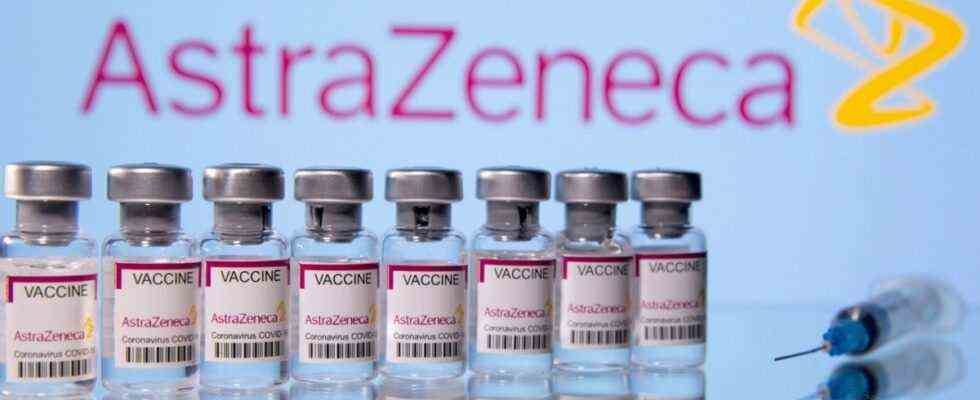The EU Commission and the British pharmaceutical company Astra Zeneca have settled their ongoing legal dispute over the delivery of corona vaccination doses, as the commission announced. This guarantees the delivery of 200 million outstanding cans by March 2022. Accordingly, the British pharmaceutical company undertakes to deliver 60 million vaccine doses by the end of the third quarter, 75 million doses by the end of the fourth and 65 million more doses by the end of the first quarter of 2022. In April, the Commission initiated legal action against Astra Zeneca because the group did not keep the contracts with the deliveries.
Incidence value exceeds 80
The seven-day incidence of new corona infections has risen again. According to the Robert Koch Institute (RKI) on Friday morning, it was 80.2 – the previous day the value was 76.9, a week ago it was 70.3. The health authorities in Germany reported 14 251 new corona infections to the RKI within one day. This is evident from the numbers that reflect the status of the RKI dashboard at 4:10 a.m. A week ago the value was 12 029 infections.
According to the new information, 45 deaths were recorded across Germany within 24 hours. A week ago there were 14 deaths. The RKI has counted 3,984,353 detected infections with Sars-CoV-2 since the beginning of the pandemic. The actual total number is likely to be significantly higher, as many infections are not detected.
The incidence of new infections has so far been the basis for many corona restrictions in the pandemic, for example as part of the federal emergency brake that expired at the end of June. In the future, other values such as the number of hospital admissions will also be given greater consideration.
The seven-day hospitalization incidence indicates how many admissions of Covid 19 patients in inpatient treatment per 100,000 inhabitants were reported in seven days. On Thursday, the RKI gave the value in the management report as 1.74 (previous day 1.81). A nationwide threshold value from when the situation can be viewed critically is not provided for the incidence of hospitalization, among other things because of large regional differences.
The previous high was around 15.5 around Christmas time. The hospitalization rate is calculated according to RKI information on the basis of the reporting date to the local health department. Accordingly, an average of about ten days elapse between an infection and hospitalization, so the hospitalization incidence reflects the infection situation with a noticeable delay. (03.09.21)
Draghi has compulsory vaccinations checked for all Italians
Italy could introduce compulsory vaccination for everyone, according to Prime Minister Mario Draghi. This will be examined when the European Medicines Agency (EMA) has granted regular approval for the current vaccines. So far, the EMA has only granted emergency approval for funds from Biontech, for example.
The country sees itself on the right way with the vaccinations, as Draghi emphasized. On Thursday, more than 70 percent of the population to be vaccinated over the age of twelve was vaccinated. For the end of September, the government expects a value of 80 percent, as Draghi said. Health Minister Roberto Speranza praised the younger population in particular, who are diligently vaccinated.
In addition, Prime Minister Draghi announced that the so-called Green Pass will be expanded. Currently, only people are allowed on domestic flights, long-distance buses or trains, museums and interior areas of restaurants who have the “Green Pass” as proof of vaccination, corona recovery or a negative test; Italy recognizes the Corona passport valid in the EU. Children under the age of twelve are exempt. Draghi said it was certain that the “Green Pass” would be applied to other areas in the future. At first it remained unclear what these would be; Authorities or areas of the private economy are conceivable. (02.09.2021)
RKI report: Vaccination rates are hardly increasing any more
In Germany, vaccination fatigue is becoming more and more widespread. According to the latest weekly report from the Robert Koch Institute on Thursday evening, the proportion of fully immunized German citizens was around 61 percent compared to the previous week (59 percent). From the end of July to the end of August, the vaccination rate only increased by a good 10 percent.
Overall, at the end of midsummer, it does not come close to the values that the RKI considered desirable in July. According to the modeling designed at the time, at least 85 percent of 12 to 59 year olds and 90 percent of seniors aged 60 and over must be fully vaccinated so that a pronounced fourth wave with full intensive care units in autumn and winter is unlikely.
The virologist Christian Drosten believes that new corona restrictions are possible in view of the falling vaccination rate in Germany. “We will have to limit the number of contacts again for society as a whole. That is very clear. The burden of infection will increase in autumn,” said the researcher from the Berlin Charité on Deutschlandfunk. It is essential to work on the vaccination quota. The current quota of 61 percent completely vaccinated is not enough at all. “We cannot go into autumn with this vaccination quota,” said Drosten, “that is absolutely not enough”.
For children under the age of twelve, he recommended keeping the regular corona tests in schools. In general, corona tests alone are not an alternative. They were only a makeshift as long as there was no vaccine. “Now the population is not accepting the vaccination, that’s a big problem.” (02.09.2021)

